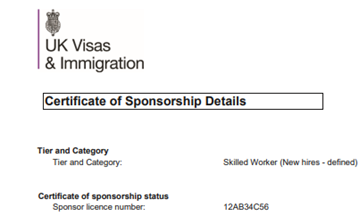Property, Housing, and Estate Managers - SOC Code 1251
Property, housing, and estate managers are essential professionals responsible for the oversight and administration of real estate assets. Their primary duties and competencies include:
- Staffing and Resource Management: Determines staffing, financial, material, and other short- and long-term requirements for effective estate management.
- Maintenance Oversight: Manages general upkeep, maintenance, and security of the estate's amenities to ensure they meet health and safety standards and legal requirements.
- Support Services Administration: Oversees support services such as catering, IT, utilities, and the physical environment of the business.
- Energy Efficiency Advice: Provides recommendations on energy efficiency practices to optimize resource management.
- Client Consultation: Discusses clients' requirements and advises on the purchase of property and land for investment and other purposes.
- Surveys and Valuations: Conducts or arranges for structural surveys of properties and undertakes necessary valuations of property or agricultural land.
- Grant and Subsidy Applications: Deals with applications for grants and subsidies to support property initiatives.
- Negotiation and Legal Formalities: Negotiates land or property purchases, sales, leases, and tenancy agreements, arranging legal formalities with solicitors, building societies, and other parties.
- Financial Management: Maintains or arranges for the maintenance of estate accounts and records to produce financial forecasts.
- Dispute Resolution: Acts as an arbiter in disputes between landlords and tenants, ensuring that both parties fulfil their legal obligations.
- Housing Application Assessment: Examines and assesses housing applications, advises on rent levels, and investigates complaints. Liaises with tenants' associations and social workers to resolve family issues.
In the context of the UK's real estate landscape, the demand for qualified property, housing, and estate managers is rising, prompting HR professionals to focus on recruiting and sponsoring skilled individuals from abroad. This guide will assist employers in navigating the complexities of hiring within the UK's immigration framework for this vital profession.
What is SOC Code 3411 for Property; housing and estate managers?
SOC Code 1251 refers to property, housing, and estate managers who oversee and manage various aspects of property management and maintenance. Their responsibilities can include:
- Determining requirements: Assessing staffing, financial, material, and other needs for both short- and long-term property management.
- Maintaining the estate: Managing the upkeep, maintenance, and security of amenities to ensure they are in good condition.
- Compliance management: Ensuring that all amenities meet health and safety standards as well as legal requirements.
- Overseeing support services: Managing additional services such as catering, IT, utilities, and physical environments associated with the estate.
- Advising on energy efficiency: Providing insights and recommendations for improving energy use and sustainability.
- Client consultation: Discussing clients' needs and advising them on the purchase of property and land for investment purposes.
- Conducting surveys and valuations: Arranging for structural surveys and conducting valuations of properties or agricultural land, including handling grant and subsidy applications.
- Negotiating transactions: Facilitating negotiations for land or property purchases, sales, leases, and tenancy agreements, while coordinating legal formalities with solicitors and other parties.
- Financial management: Maintaining estate accounts and records, including producing financial forecasts.
- Dispute resolution: Acting as an arbiter in disputes between landlords and tenants to ensure compliance with legal obligations.
- Housing application assessments: Examining housing applications, advising on rent levels, investigating complaints, and liaising with tenants’ associations and social workers to resolve family-related issues.
Property, housing, and estate managers play a vital role in the real estate sector, contributing to effective management practices, tenant satisfaction, and the overall functionality of residential and commercial properties.
Eligibility to Hire Property; housing and estate managers (SOC Code 3411)
1. Job Requirements
Housing and estate managers must possess a diverse skill set and relevant experience to effectively oversee property management and ensure compliance with legal and safety standards. Candidates are expected to meet the following qualifications:
- Experience in Property Management: Proven track record in managing residential, commercial, or mixed-use properties, including overseeing maintenance, security, and general upkeep.
- Financial Acumen: Ability to handle estate accounts and financial records, including producing budgets and forecasts.
- Knowledge of Legal and Safety Standards: Familiarity with regulations regarding health and safety, property laws, and tenant rights and responsibilities.
- Communication Skills: Strong capability to discuss client requirements, address tenant complaints, and negotiate agreements with various stakeholders.
- Education: While not always required, a degree in property management, real estate, business administration, or a related field can be advantageous.
- Advisory Experience: Ability to provide clients with strategic advice on property investments, energy efficiency, and securing grants or subsidies.
- Survey and Valuation Skills: Competence in conducting structural surveys and property valuations as well as negotiating land purchases, sales, or lease agreements.
Ensure that your qualifications and experience align with SOC Code 1251 and meet the standards expected for the role.
- Salary Thresholds
- Use the Minimum Salary Calculator to ensure your salary offer meets immigration requirements.
Sponsoring Property; housing and estate managers: A Step-by-Step Guide for HR Professionals
Once you’ve confirmed that the role and candidate meet the eligibility requirements, follow this step-by-step guide to sponsoring Property; housing and estate managers under SOC Code 1251.
Step 1: Obtain a Sponsor Licence
Before hiring non-UK Property; housing and estate managers, your company or institution must obtain a sponsor licence. This licence enables you to legally sponsor overseas Property; housing and estate managers under the Skilled Worker Visa program.
- Sponsor Licence Application: Submit documentation proving that your business is legitimate and has a genuine vacancy. Visit the sponsor licence application guide for more information.
- Sponsor Licence Fees: Small businesses typically pay £574, while larger institutions pay £1,579. For more information, visit the sponsor licence fees guide.
- Processing Time: Applications typically take up to 8 weeks, but using the Sponsor Licence Priority Service can reduce the processing time to 10 working days.
Once your sponsor licence is approved, you will receive a sponsor licence number, which allows you to assign Certificates of Sponsorship (CoS).
Step 2: Assign a Certificate of Sponsorship (CoS)
Once you have your sponsor licence, the next step is to assign a CoS to the Property; housing and estate managers. This document provides key details about the job and the individual being sponsored.
- Defined vs Undefined CoS: Use a Defined CoS for Property; housing and estate managers applying from outside the UK, and an Undefined CoS for those already in the UK. Learn more in the Defined & Undefined Certificates of Sponsorship guide.
- Required Documents: Provide details such as the Property; housing and estate managers’s portfolio, passport and job offer. Refer to Documents Required for Certificate of Sponsorship for a full list of necessary documents.
Step 3: Apply for the Skilled Worker Visa
Once the CoS is issued, the Property; housing and estate managers can apply for the Skilled Worker Visa.
- Visa Fees: Fees vary depending on the role and visa length—use the visa fees calculator to estimate the costs.
- Immigration Skills Charge: Employers are required to pay this charge as part of sponsoring non-UK workers. This is separate from visa fees.
Conducting a Right to Work Check for Property; housing and estate managers
Before the Property; housing and estate managers begins working, you must conduct a right to work check to ensure they are legally allowed to work in the UK.
- Manual Right to Work Check: Verify original documents such as the Property; housing and estate managers’s passport and visa.
- Online Right to Work Check: If the Property; housing and estate managers holds an eVisa, you can use the UK government’s online system to verify their right-to-work status.
For more details on how to perform these checks, see the right to work check guide.
Post-Hiring Responsibilities and Compliance
- Record-Keeping and Reporting
- Record-Keeping: Maintain accurate and up-to-date records of the Property; housing and estate managers’s employment details, salary and contact information.
- Reporting Changes: Report any significant changes to the Property; housing and estate managers’s role—such as promotions or salary increases—via the Sponsor Management System (SMS).
- Sponsor Licence Duties and Compliance
- Failure to comply with your sponsor licence duties can result in penalties or sponsor licence revocation, impacting your ability to sponsor future Property; housing and estate managerss.
How Borderless Can Help with Sponsoring Property; housing and estate managers
Sponsoring Property; housing and estate managers under SOC Code 1251 can be a complex process, but Borderless can simplify it for you. We offer comprehensive support to help you manage the entire sponsorship process.
End-to-End Sponsorship Support
At Borderless, we assist with:
- Sponsor Licence Application: Guiding you through the application process and ensuring all required documents are submitted correctly.
- Certificate of Sponsorship Assignment: Streamlining the CoS process to make hiring easier.
- Compliance Management: Helping you stay compliant with immigration laws to avoid penalties.
If you need assistance with hiring or sponsoring Property; housing and estate managers, get in touch for personalised support.
Conclusion
Hiring and sponsoring Property; housing and estate managers under SOC Code 1251 can be a rewarding way to enrich the cultural landscape of your organisation. By following the steps outlined in this guide, you can successfully navigate the sponsorship process while ensuring compliance with UK immigration laws.
For further guidance, Borderless is ready to assist you with all your sponsorship needs. Contact us for expert advice.
Automate Home Office Audits with Borderless
The Borderless platform provides a centralized system for all sponsorships, automating reminders for key tasks and ensuring best practices across your organization, simplifying audit preparation and ongoing compliance.






